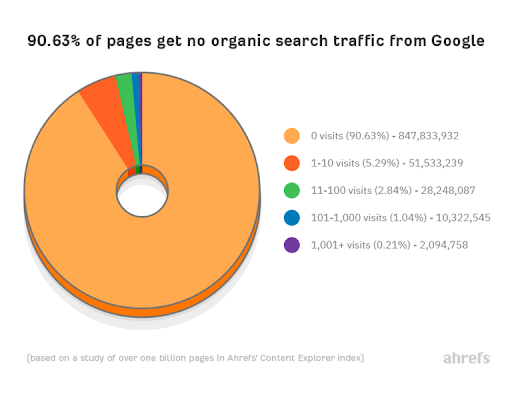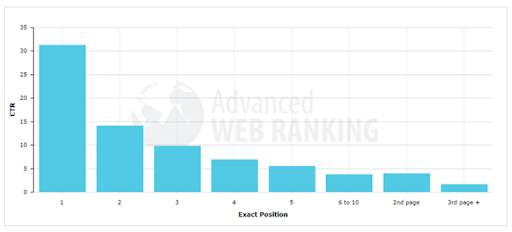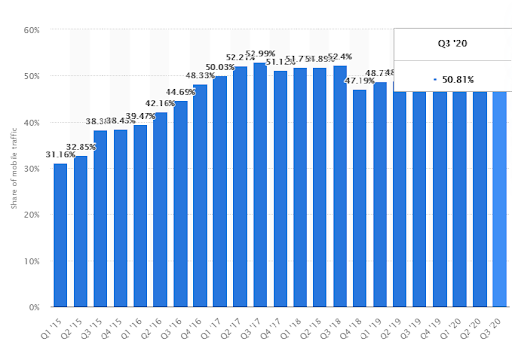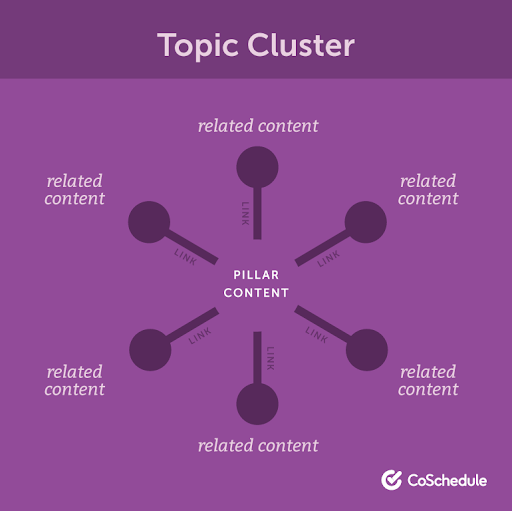For anyone who uses digital marketing for their business, it is crucial to always be updated with the latest trends and techniques that could help them attract traffic to their sites and ultimately convert web visitors into actual leads. If you share the same goal, you know that SEO plays a big role, and landing the top spots on search engine results pages or SERPs is not something that happens by luck. Some factors impact SEO ranking - factors that you need to know and understand so you can boost your online presence and help you avoid mistakes
What are SEO Ranking Factors?
As you already know, SEO is the strategy of optimizing your site to ensure that it ranks as high as it possibly can in organic search results. The stress here is ‘organic’, which means any results from pay-per-click advertising are not included. Google and other search engines do not just randomly decide about the rankings on their search results page. Some algorithms take into consideration specific metrics and preferred characteristics set by the search engines and these algorithms determine the rankings. There are over a hundred ranking factors but they fall into three main categories: • On-page ranking factors which include the quality and demand for the content. • Keywords, meta descriptions, URL, title tag, and image alt text. • Off-page ranking factors which mainly involve backlinks. • Technical ranking factors are also measured on the website but they are more about the overall performance of the whole website instead of individual web pages.
Here are Some of the Top SEO Ranking Factors that You Need to Focus on:
Website and webpage speed
No one would wait for your page to load when there are pages out there that load in a second. So make sure that every page on your website loads quickly. You can use tools to test your website speed to see where you need to improve it.Mobile usability
More and more people are using their mobile devices to access the internet. That’s certainly a factor that affectshow Google ranks pages for their search results. Google prioritizes results that come from mobile-optimized websites. That means if your website is not optimized for mobile use, there’s a big chance you won’t rank as high as you want. If you’re not sure whether your website is mobile-friendly or not, you can check if it automatically resizes to fit the particular device used to view it. See if the menus are easily accessible for navigation and that your content is not drowned by ads.User engagement
It shouldn’t be surprising that search engines turn to their users to help them figure out which pages should end up on their first page of results. They look into how their users interact with the pages they open to have an idea of how useful and engaging they are. Some engagement factors they check include click-through rate, time spent on-site, and bounce rate, among others. These things show if a page is really of value to users. Optimizing content for featured snippets, as well as having a great design and the use of pillar pages and topic clusters can increase the use of internal links and improve time spent on your website.High-quality content and the right keywords
As these two need to be present together to be successful, you should consider them as one. To get the attention of search engines, you need to be regularly posting content on your site. But they should be of high-quality - well-researched and well-crafted if you want them to rank. Fresh and informative content not only boosts your rank but also wins the trust of your audience thus investing in quality content can be beneficial. Of course, even the most well-written content can fail if they don’t have the right keywords that their intended audience is searching for. So it is equally important to perform keyword research to know which ones can drive traffic to your website. To get the right keywords, you also need to consider using long-tail keywords for people who use long phrases for their searches. You also have to think of your website’s competitive range so you’ll know which keywords will be too hard for you to rank for.Domain age and authority
A website that has been around three years old or more and is optimized also gives you an advantage. But aside from age, the authority also matters to search engines. To establish authority, you need to make sure that you produce more than enough high-quality content and get more inbound links and social media shares. You can also better establish your authority by employing strategies like pillar pages and topic clusters which will be discussed below.Latest SEO Statistics to Know if You Want to Boost Search Rankings
• Ahrefs’ study shows that 90.63 percent of websites don’t get organic traffic from Google mainly because 55.24 percent of their pages didn’t have backlinks.

• According to Advanced Web Ranking, 67.60 percent of all clicks are received by the first five organic results.

• 70 to 80 percent of sponsored searches are ignored by users. • Updating and republishing old blog posts with new content and images can increase organic traffic by as much as 111.37 percent. • 50.81 percent of website traffic globally comes from mobile phones.

• 97 percent of page 1 results have one or more images
on their page. • More than 5.14 billion searches are made on Google
every single day. • There are 200 SEO factors search engines consider but the two most important ones are backlinks and high-quality content.
Topic Clusters and Pillar Pages Defined
Topic clusters and pillar pages have been around for several years now but, surprisingly, very few understand it and fewer still are the ones who have nailed their execution for their SEO. Before you learn how to make topic clusters and pillar pages work for you, you should first understand what they are exactly.
Topic clusters
In a nutshell, topic clusters are a collection of content pieces found on a website that are all connected to one common subject, which is the “pillar.” It focuses more on the topics of the articles as opposed to the keywords. The topic clusters are typically interlinked blog posts that are about sub-topics related to the pillar and are going to generate links to the pillar page. When done right, topic clusters can deliver higher rankings, as well as more traffic and conversions. They can also position you as an authority in your industry. It’s one of the best growth hacking techniques that you can perform. One of the reasons that topic clusters work is that by having several content pieces with information about a particular topic, you get to perform better than other sites with less. For one, your audience would be more likely to stay on your website when they see that there’s more to learn about the topic they searched for that you could provide.
Pillar pages
A pillar page is like the foundation that holds the entire topic cluster together. It’s a page that covers the topic in general on a single page and then allows the cluster blog posts to go more in-depth about specific subtopics. Pillar pages are often longer than regular blog posts as they need to be able to briefly discuss all the aspects of the specific topic that you want your page to rank for. Note that the discussions made on the pillar page should somehow be more general so as not to give away all the information to the readers and make them want to click on a cluster of content to learn more. One good example is a pillar page with a title like “the ultimate guide to email marketing,” which is quite a broad topic, and then has cluster content, for example, about why one should verify email address to avoid fraud, or about what your email newsletter should contain, and more. If your pillar page is doing its job right, it would be able to answer a searcher’s query so that they will click on it when they see it on the results page. Then once they’re there, they should like the content they see and be interested enough to check out the hyperlinked content they see on that pillar page. There is value in interlinking. The use of pillar pages and topic clusters will not only make it easier for your audience to get all the information they need in one place but also help Google and other search engines understand the relevance and the relationship between the pages on your website.
5 Tips on How to Use Topic Cluster and Pillar Pages to Boost Your Rankings
One thing about topic clusters and pillar pages is that to some they appear to be too simple an idea while for others, they come across as too complicated. So which one is true? Neither one is exactly right because it’s not so simple that you need not learn how to do it right and not so complicated for you not to nail it with enough knowledge and effort. To help you make topic clusters and pillar pages work for you, here are some tips to guide you:
Tip #1. Selection of topics is important, so choose topics with your target audience’s pain points in mind
The whole concept of pillar pages and topic clusters and their success depends greatly on the topics you post about. Even if you have a lot of cluster content, if they’re about a topic that not many would be interested in, they wouldn’t serve their purpose. So put yourself in the position of your target audience or customers to figure out what questions they would be asking or what information they would be looking for online. For instance, if your website is about personal development services then you should create content that will serve as guidance for those who are aspiring to develop their skills, like “5 vital info you need to know when shifting to management career” or “The common reasons why a manager fails,” then you can plan out your topic based on such insights. Another thing to consider when creating topics is whether or not they deliver enough SEO ‘opportunity’ for you. Remember that working on cluster pieces for that topic is going to require time and effort. So make sure you choose topics and long-tail keywords that receive more than adequate searches per month.Tip #2. Review all the content that you already have and see if it can be a topic cluster
It’s not unlikely that your website is already full of content that would work wonders as topic clusters. So before you decide to invest time in creating all new content for your topic cluster, it’s wise to step back and go through your existing ones first. Do an audit of all your content and categorize them according to their topic. You might find that creating a spreadsheet with columns for details that could help you sort your content would make the task a lot easier. Some information about the content that you might want to include are: • Type of content • Keywords used • General Topic • Sub-topic • Target audience • URL and Title • Where you plan to link it to To make the most of the content pieces that you already have, you can come up with pillar topics that the existing clusters could link back to. You might even find some content that could be expanded to be turned into pillar pages. Make sure it makes sense that the articles are linked to the pillar page and that it would not feel forced. More importantly, remember to prioritize user intent when considering the main topic for your pillar pages and choosing your topic clusters. Finally, know that content audits are not a one-time thing. It should be done regularly or at least once a year so you can better measure your performance and see where you can make adjustments or if you need to come up with new topics.




